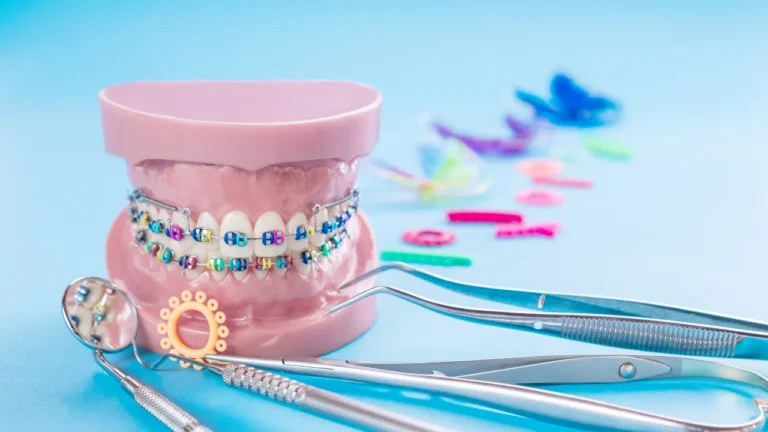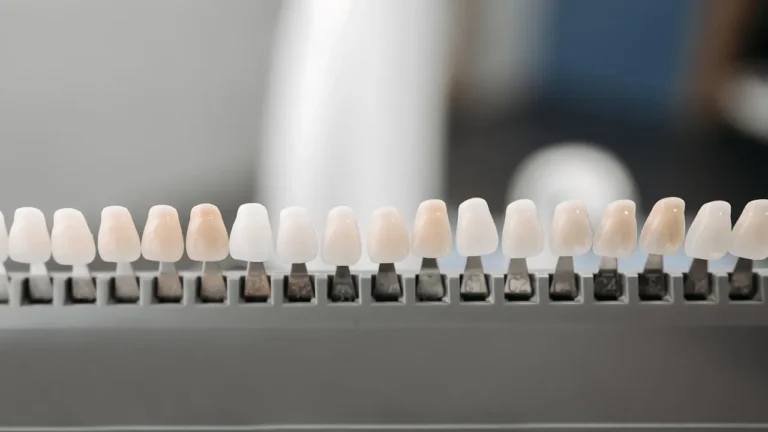Sensitive teeth are a common dental issue that affects a significant portion of the population.
If you experience sharp, temporary pain when consuming hot, cold, sweet, or acidic foods and drinks, you might be dealing with tooth sensitivity.
Understanding the causes and available treatments is the first step to managing this discomfort effectively.
What Causes Sensitive Teeth?
Sensitive teeth can result from a variety of factors that affect the protective layers of your teeth:
- Enamel Wear and Tear: The enamel is the outermost layer of your teeth that protects the sensitive dentin underneath. Over time, the enamel can wear down due to factors like aggressive brushing, acidic foods, and teeth grinding, leading to sensitivity.
- Gum Recession: Gum recession exposes the roots of your teeth, which do not have enamel protection. This exposure can cause pain when you eat or drink something hot, cold, or sweet.
- Tooth Decay or Cavities: Cavities create holes in the enamel, exposing the dentin and nerves inside the tooth, which can lead to sensitivity.
- Cracked or Chipped Teeth: A crack or chip in a tooth can expose the dentin or even the pulp, resulting in sensitivity and discomfort.
- Acidic Foods and Drinks: Regular consumption of acidic foods and beverages can erode the enamel, making your teeth more sensitive.
- Aggressive Brushing Habits: Brushing too hard or using a hard-bristled toothbrush can wear down enamel and cause gum recession, leading to sensitivity.
Less common causes include sensitivity following dental procedures, such as fillings, crowns, or teeth whitening. This type of sensitivity is usually temporary.
Symptoms of Sensitive Teeth
Sensitive teeth often present with specific symptoms:
- Sharp, Temporary Pain: Pain when consuming hot, cold, sweet, or acidic foods and drinks.
- Discomfort During Brushing or Flossing: You may experience sensitivity when brushing your teeth or flossing, especially near the gum line.
- Sensitivity to Cold Air: In some cases, breathing in cold air can cause discomfort in sensitive teeth.
How to Manage Sensitive Teeth
Managing sensitive teeth often involves a combination of immediate relief and long-term solutions:
- Immediate Relief Options:
- Desensitizing Toothpaste: These toothpastes contain compounds that help block the transmission of pain from the tooth surface to the nerve.
- Fluoride Treatments: Fluoride can help strengthen the enamel and reduce sensitivity. Your dentist may apply a fluoride varnish during your visit.
- Long-Term Solutions:
- Dental Sealants: Sealants can be applied to the exposed root surfaces to protect them from sensitivity.
- Bonding Agents: These can be used to cover exposed root surfaces or enamel wear.
- Root Canal: In severe cases where sensitivity is due to nerve damage or extensive decay, a root canal may be necessary.
- Proper Oral Hygiene Practices: Regular brushing with a soft-bristled toothbrush, flossing, and using a fluoride mouthwash can prevent sensitivity from worsening.
Choosing the Right Products for Sensitive Teeth
Using the right dental products can make a significant difference in managing tooth sensitivity:
- Toothpaste Recommendations: Choose a desensitizing toothpaste that contains potassium nitrate or stannous fluoride. Brands like Sensodyne, Colgate Sensitive Pro-Relief, and Crest Sensi-Stop are popular options.
- Mouthwash and Dental Tools: Opt for a fluoride mouthwash that strengthens enamel and helps reduce sensitivity. Use a soft-bristled toothbrush to prevent further enamel wear and gum recession.
Prevention Tips for Sensitive Teeth
Preventing tooth sensitivity involves adopting good oral hygiene practices and making some dietary changes:
Oral Hygiene Practices
- Brush Gently: Use a soft-bristled toothbrush and brush with gentle, circular motions to avoid damaging enamel and gums.
- Regular Dental Check-ups: Visit your dentist regularly for cleanings and check-ups to catch any potential issues early.
Dietary Considerations
- Reduce Acidic Foods and Drinks: Limit your intake of acidic foods and beverages like citrus fruits, tomatoes, sodas, and wine.
- Avoid Abrasive Whitening Products: Some over-the-counter whitening products can be harsh on enamel. Consider professional whitening options that are gentler on your teeth.
When to See a Dentist
If you experience persistent sensitivity that doesn’t improve with at-home care, it’s important to consult your dentist:
- Sensitivity that lasts for more than a few days.
- Signs of tooth decay, gum disease, or a cracked tooth.
- Difficulty eating or drinking due to pain.
Your dentist can evaluate your symptoms and recommend the most appropriate treatment.
Take Away
Sensitive teeth can be managed effectively with the right approach.
By understanding the causes and adopting preventive measures, you can reduce sensitivity and enjoy your favorite foods and drinks without discomfort.
If you’re struggling with tooth sensitivity, consider scheduling a consultation with Mac Dental Studio for a comprehensive evaluation and personalized treatment plan.
Frequently Asked Questions (FAQs)
What is the best toothpaste for sensitive teeth?
The best toothpaste for sensitive teeth typically contains potassium nitrate or stannous fluoride. These ingredients help block pain signals from the tooth surface to the nerve. Popular brands include Sensodyne, Colgate Sensitive Pro-Relief, and Crest Sensi-Stop.
Can sensitive teeth be cured?
While sensitive teeth can often be managed effectively, there is no permanent “cure” for the condition. However, with proper care, such as using desensitizing toothpaste and avoiding triggers, sensitivity can be significantly reduced or eliminated.
How long does it take for sensitive teeth to go away?
The time it takes for sensitive teeth to improve depends on the cause and the treatment. With the use of desensitizing toothpaste, some people may notice an improvement within a few days, while others may take several weeks.
Is tooth sensitivity a sign of a serious problem?
Tooth sensitivity can sometimes indicate a more serious issue, such as tooth decay, gum disease, or a cracked tooth. If your sensitivity persists or worsens, it’s important to see a dentist for a thorough evaluation.
What foods should I avoid if I have sensitive teeth?
If you have sensitive teeth, it’s best to avoid acidic foods and drinks like citrus fruits, tomatoes, soda, and wine. These can erode enamel and exacerbate sensitivity. Also, limit sugary snacks, as they can lead to tooth decay.
Can I whiten my teeth if I have sensitive teeth?
Yes, you can whiten your teeth if you have sensitive teeth, but it’s advisable to use a gentle whitening product or seek professional whitening from your dentist. Over-the-counter whitening kits can be too harsh and increase sensitivity.









